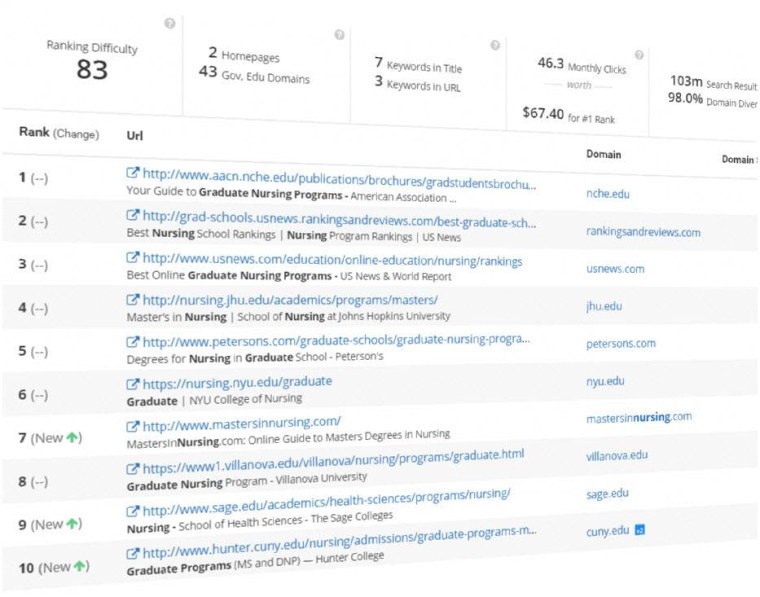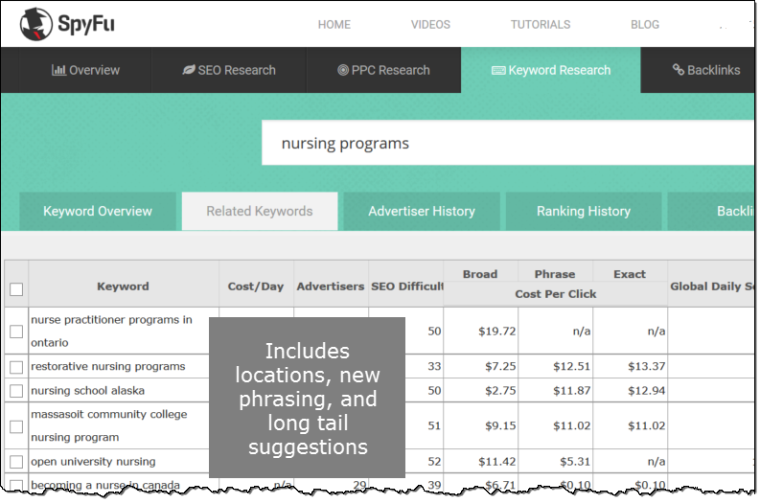

You know the old SEO saying, “If you can’t rank on the keyword you want, rank on a related one that isn’t as cut-throat.”
No? Alright, it was worth a shot. The sentiment works, though.
Some keywords are too far out of reach. Your gut usually raises the flag, and an objective assessment might help even more. That was the idea behind this project.
Since we had already broken apart all the factors that go into ranking for keywords in Google SERPs on our site, we were able to create a measurement that simplifies the work. That let us assign a Ranking Difficulty score to every keyword.
This measures SEO low-hanging fruit—the eventual reward easily justifies the amount of effort required.
- Reward: Qualified traffic and valuable clicks
- Effort: Authoritative content, incredible SEO acrobatics, link juice, possible naming rights of future children…
The idea is to help you weigh your chances (and how much work is required) on keywords you target. The bigger the number, the tougher it is to rank on it. If you do find yourself drooling over tempting keywords that are hanging just a bit too high, there’s an option that’s still pretty sweet.
Let’s start with this example: “graduate nursing programs”
It’s incredibly competitive. No single domain dominates the rankings, but SERP powerhouses like US News and its standalone “Rankings and Reviews” make the top 3 results. While many debate the true authority of .edu or .gov domains, it is notable that the nature of the keyword means established universities are prevalent in the rankings.
Getting a first-page ranking here is what we consider “hard”. The Ranking Difficulty score for “graduate nursing programs” is 83. This score takes many factors into account. Think “the strength of ranking domains” or on-page signals like “keyword in title”. It is a relative gauge of how much — in and out of your control — is stacked against you.
So About That Sweet Option…
Look for keywords similar to “graduate nursing programs,” but with a lower ranking difficulty score. (It goes without saying that these keywords still have to deliver, too. )
Type a keyword into the search bar on SpyFu.com, and choose the Related Keywords tab.
These new keyword ideas come from domains that rank for and buy that same original keyword. Taken further, these are trusted, competitive keywords that deliver traffic to the domains.
Next, Aim for Lower Difficulty Ratings
You are looking for similar keywords that don’t bring “scaling Mount Everest” to mind. Use the built-in filters to nail down lower-difficulty keywords within your reach.
There doesn’t have to be an exact difficulty score to target. Sift past high-competitive keywords into moderate scores, but review stats within the grid like search volume and click-through rate to make sure that these keywords match your targets.
Remember, things are relative. Look at your difficulty score like a spending budget. Some people have power, link juice and SEO tactics behind them to attack tough-to-rank-on keywords. What might be steep to one group is a glowing target to another.
[“source-searchenginejournal”]




